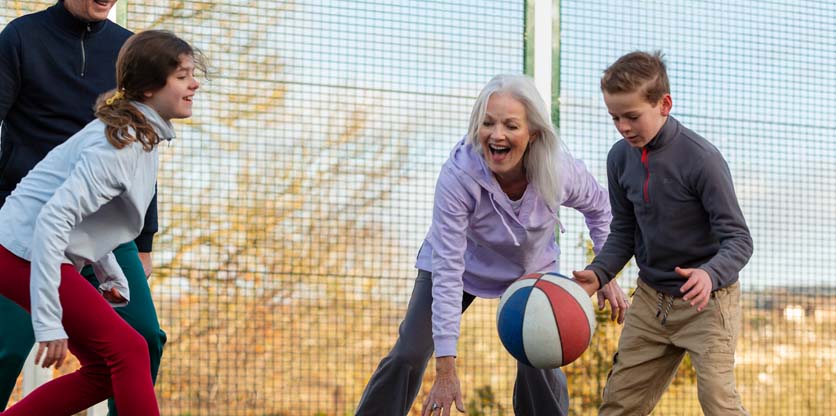Meethealer • 27 Feb,2024

It is extremely important that every age group regularly engages in sports and exercises to maintain a healthy life. Children, adolescents and adults have great benefits in terms of physical and mental health by taking time for sport and non-exercise at all stages of their lives.
Regular exercise for children supports their physical development, increases muscle strength, improves body coordination, and reduces the risk of obesity. At the same time, playing sports develops a sense of discipline in children, enhances their social skills, and increases their self-confidence. At least 1 hour of physical activity per week is recommended for children.
Young people should also play sports and exercise regularly. Since their bodies are still developing rapidly during this period, sports and exercise support the bone and muscle health of adolescents. At the same time, doing sports reduces stress in adolescents, increases concentration and concentration. For adolescents, it is recommended that they exercise 3-4 days a week and at least 1 hour at a time.
It is extremely important for adults to have time for sport and non-exercise at every stage of their lives. Exerciseins heart health in adults, helps in weight control, accelerates metabolism, and reduces the risk of depression. At the same time, adult sporting preserves bone health, strengthens the immune system, and slows down the aging process. For adults, it is recommended that they exercise for at least 2-3 days a week and at least 30 minutes each time.
As a result, sporting and non-exercise time for every age group is extremely important for a healthy life. Along with physical activity, balanced eating habits must be developed and a healthy lifestyleined. It is therefore critical for healthy living that children, adolescents and adults regularly spend time at sport and non-exercise every day. For adults, it is recommended that they exercise for at least 2-3 days a week and at least 30 minutes each time. This recommendation specifies the minimum amount of physical activity required to lead a healthy life. Exercise strengthens the body, increases energy levels, and helps reduce stress. At the same time, regular exercise preserves heart health, helps in weight control, and improves overall quality of life.
As a result, sporting and non-exercise time for every age group is extremely important for a healthy life. Therefore, children, adolescents and adults should be encouraged to make sport part of their daily routine. In addition to sports, balanced eating habits must be developed to maintain a healthy lifestyle. A healthy diet ensures that the body receives the nutrients it needs and that body functions work efficiently. This allows you to stay in optimal health and shape not only by exercising, but also with proper nutrition.
It is therefore critical for healthy living that children, adolescents and adults regularly spend time at sport and non-exercise every day. In addition to doing sports, exercising increases body flexibility, improves muscle strength, andins bone density. Having an exercise habit from an early age is of great importance forining a healthy and active life in the years ahead. Therefore, sport and exercise should be encouraged to be an integral part of life. It is therefore critical for healthy living that children, adolescents and adults regularly spend time at sport and non-exercise every day. In addition to doing sports, exercising increases body flexibility, improves muscle strength, andins bone density. Having an exercise habit from an early age is of great importance forining a healthy and active life in the years ahead. Therefore, sport and exercise should be encouraged to be an integral part of life. Regular exercise is also known to have a positive effect on a person's mood and enhance their ability to cope with stress. Exercise contributes positively not only to physical health, but also to mental health. So playing sports is an activity that strengthens not only the body, but also the mind. That is why it is recommended that people of all ages include sport in their lives. Regular exercise is also known to have a positive effect on a person's mood and enhance their ability to cope with stress. The positive effect of sports on the mood helps a person to maintain emotional balance and to look more positively at life. It also improves the ability to cope with stress, enabling a person to deal more effectively with the challenges he encounters in his daily life. Exercise contributes positively not only to physical health, but also to mental health. These contributions to mental health strengthen a person's cognitive functions and allow them to remain more mentally active during the aging process. It also helps people fight problems such as depression and anxiety, thanks to its positive effects on mental health.